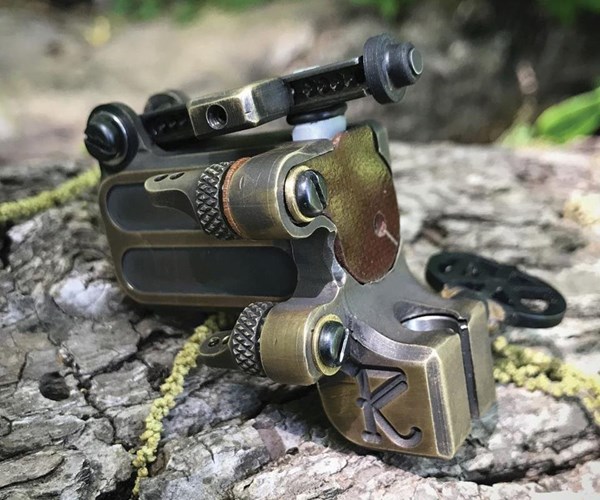Case Study: Manufacturing the Tools for Tattoos
Dan Kubin’s artistry isn’t just skin deep. He’s found a way to channel his creativity into another part of the tattooing process—designing and developing the machines that apply tattoos.
Share







Dan Kubin used to prototype his distinctive rotary tattoo machines using hobbist-type equipment, but the process was too slow to keep up with his creativity and the demand for his products.
When most people think of tattoos, they picture the designs permanently inked on someone’s body. Many of these are beautiful and intricate works of art created by a talented and gifted artist. But tattoo artist Dan Kubin has added another layer to his creativity; he designs and develops the machines used to apply tattoos. Moreover, these machines themselves are works of art.
Mr. Kubin became interested in tattooing when he served as a machinist and welder in the U.S. Air Force. He later began to design and develop tattoo machines manually, outsourcing their machining in bulk. This system was unsustainable, however, due to the number of different designs he makes, combined with the custom-nature of his work. His constantly evolving creativity was frustrating for everyone involved, he says.
Instead of spending a day and a half using a small, hobbyist-type benchtop mill with a digital readout and a rotary table to create the basic frame of new tattoo machine prototypes, Mr. Kubin decided to buy a milling machine with a control so he could develop parts exactly the way he wanted within his own timeframe.
Related Content
-
2 Secondary Coordinate Systems You Should Know
Coordinate systems tell a CNC machine where to position the cutting tool during the program’s execution for any purpose that requires the cutting tool to move.
-
6 Machine Shop Essentials to Stay Competitive
If you want to streamline production and be competitive in the industry, you will need far more than a standard three-axis CNC mill or two-axis CNC lathe and a few measuring tools.
-
5 Tips for Running a Profitable Aerospace Shop
Aerospace machining is a demanding and competitive sector of manufacturing, but this shop demonstrates five ways to find aerospace success.













